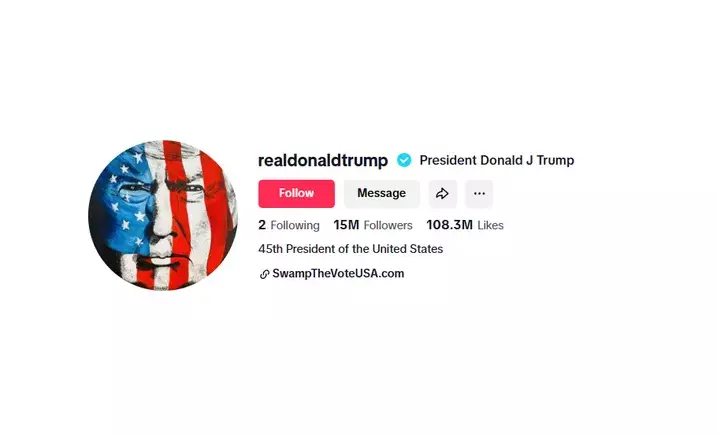The saga surrounding TikTok’s status in the United States is far from straightforward, characterized by political maneuvering, legal ambiguities, and national security concerns. As the platform oscillates between being operational and being outlawed, the implications for its users, stakeholders, and competitors are profound. The crux of the matter hinges on the balance between executive authority and legislative action, raising critical questions about the future of TikTok in America.
The Legislative Framework for the TikTok Ban
At the heart of the controversy lies a legislative act aimed at safeguarding American interests from foreign threats, specifically the “Protecting Americans from Foreign Adversary Controlled Applications Act.” With overwhelming bipartisan support, the law passed with a vote of 431 to 83 in both Houses of Congress. This clearly expresses a significant concern among lawmakers regarding TikTok’s ties to China and the potential implications for user data and national security. Despite the robust framework in place, the real enforcement of a ban remains mired in uncertainty.
The immediate aftermath of the legislation saw TikTok’s operations abruptly halted due to concerns that app stores and providers could face hefty fines for allowing the app to remain functional. However, a peculiar twist occurred when the outgoing Biden administration indicated it would not enforce the ban, leaving the onus of action squarely on the shoulders of the incoming Trump administration. This delay resulted in a bizarre period rife with operational confusion, where TikTok continued to be used by millions while simultaneously standing on the brink of illegality.
Upon taking office, President Trump intervened by granting TikTok a temporary 75-day extension. This decision was designed to offer the company a lifeline to negotiate a future in the U.S., potentially through a sale or significant restructuring that would alleviate security concerns. However, legal experts have cast doubt on the validity of this extension, suggesting it may lack enforceability because the law was already in effect. The apparent contradiction points to the complexities of governance where executive action collides with legislative mandates, raising eyebrows about the constitutional implications of such an approach.
Oracle, the tech giant providing back-end support for TikTok, appears to have felt reassured by Trump’s promises of protection against prosecution despite the uncertainties that loom over the app. In contrast, major platforms like Apple and Google are exercising caution, apprehensive about the potential ramifications of flouting the law without a clear and binding directive from the administration. This dichotomy not only underscores the various risk appetites of technology companies but also marks a deeper concern about the volatility of regulatory landscapes under the influence of changing political tides.
The concerns surrounding TikTok are not solely about legal or corporate maneuverings; they are deeply rooted in national security. Lawmakers have been privy to classified briefings that revealed alarming insights into TikTok’s operations and its potential for data misuse. While the specific details of these briefings remain a closely guarded secret, the bipartisan vote indicates a broader consensus on the apprehension surrounding the app.
What is particularly alarming is the potential for political motivations to overshadow genuine security concerns. Trump’s earlier remarks suggest he perceives a golden opportunity to indelibly tie TikTok’s operations to American interests, pledging to seize a 50% stake for the U.S. Such calculations might muddle rational decision-making processes based on national security, further complicating TikTok’s uncertain future.
As of now, TikTok continues to function in the U.S., yet the operational landscape remains fraught with risks. Users can still access the app, but the reality is that it exists in a precarious limbo. The absence of definitive enforcement strategies leaves numerous questions hanging in the balance. Perspectives on TikTok’s future depend on how stakeholders interpret the ongoing political dynamics, the willingness of app providers to gamble on the administration’s assurances, and the forthcoming actions of the current government.
Ultimately, whether TikTok can build a sustainable operational model in the U.S. hinges on a confluence of legal clarity, political will, and the resolution of national security apprehensions. Without a robust strategy to assuage concerns or a clear legal framework to protect its operations, TikTok might find itself more vulnerable than ever, trapped in a web of its own international origin and domestic reception. What happens next is anyone’s guess, as the dance between politics, security, and commerce takes another step forward in this unpredictable landscape.

